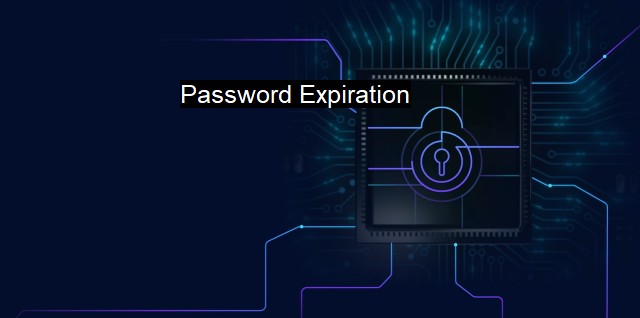What is Password Expiration?
Securing Your Online World: The Importance of Password Expiration in Cybersecurity and Antivirus Software
Password expiration is a cybersecurity protocol where a user is required to change their password after a specified period. This practice is prevalent in various industries such as banking, insurance, public agencies, and information technology fields. The concept is anchored in the belief that changing passwords regularly can help protect systems and data, given that the likelihood of a password being cracked increases over time.Password expiration has two major principles: complexity and lifespan. Complexity pertains to the requirement of combining alphanumeric characters, symbols, and cases for additional security. Meanwhile, the lifespan principle relates to how long a password can be used before it needs to be changed. A common standard is to opt for a password that is complex enough to evade guessing and hacking, yet easy enough to remember as the user have to change it regularly.
The necessity for a password expiration policy is often debated among cybersecurity and antivirus experts. Pros and arguments in its favor suggest that a frequency in changing credentials can prevent hackers from accessing encrypted or stored data. Since breaking a password often requires time, changing passwords can invalidate a hacker's progress towards decryption. Some use automated guessing, which necessitates a number of attempts before successfully decoding a password. As such, a password expiration date represents a safety measure against the probability of such continuous attempts.
In practical scenarios involving malicious insiders, password expiration policies can minimize the damage. Even if one inside a network were to acquire your password, if the password is changed regularly, the window for unauthorized access is significantly reduced. the change would make their stolen information useless for any active attacks.
This measure has its downsides. Frequent password changes can lead to user exhaustion, causing them to use iterations of previous passwords or predictably straightforward ones. This would, ironically, make systems more vulnerable to password-cracking attempts. Some studies indicate that regular password changes lead to riskier storing habits, where users keep written copies of their passwords or save them on their devices, in order to remember them.
Mandatory password changes might give a false sense of security, sidetracking individuals from other vital areas. Cybersecurity and antivirus protection requires a holistic approach, involving software updates, intrusion detection systems, data encryption, traffic filtering, and user education, all aspects as important as implement password expiration policy.
Opponents of the password expiration policies argue that it can and should be replaced with stronger initial password policies, multi-factor authentication, or biometric identification. A complex, unique password not used on any other network aids in thwarting attacks, coupled with a two-step verification process that requires a user to verify identity through a separate device or entered code.
Many technology forums suggest that data breaches often happen not due to old passwords but other weaknesses in the system, such as faulty software or phishing scams. Here, even the most robust password expiration policy would be of little use in preventing breaches.
The set paradigm in computer protection seems to have moved toward more powerful solutions such as encryption, multi-factor authorization, and biometric systems that identify users by their fingerprints or retinal patterns. Encrypted data would still be unreadable without a decryption key. Adding biometric identifiers such as fingerprints, that are incredibly difficult to replicate, sufficiently bolsters protection and eliminates the need for password expiration.
Password expiration remains a standard tool in the world of information technology. it should not be the sole measure for digital security. Companies should consider employing robust password requirements, multi-factor authentication, data encryption, up-to-date software, and well-rounded cybersecurity and antivirus measures to provide balanced security. User education about safe internet practices is equally crucial to form a strong and holistic cybersecurity landscape.

Password Expiration FAQs
What is password expiration?
Password expiration is a security feature that requires users to change their passwords after a specified period of time. This is done to minimize the risk of unauthorized access to sensitive information.Why do I need to change my password regularly?
Regularly changing your password helps to reduce the risk of a successful cyber attack. Over time, passwords may become weak or compromised, leaving your account vulnerable to exploitation. Password expiration ensures that users regularly update their passwords to maintain the highest level of security possible.How often should I change my password?
The frequency with which you need to change your password depends on your organization's cybersecurity policies. Typically, organizations will require password changes every 60-90 days. However, some organizations may require more frequent changes if they have a high level of risk exposure.What happens if I don't change my password when it expires?
If you fail to change your password before it expires, you may be locked out of your account or unable to access certain systems or data. Additionally, your account may be flagged as a security risk, and your organization's security team may take action to mitigate the threat. It is important to change your password promptly to avoid these consequences.| | A | | | B | | | C | | | D | | | E | | | F | | | G | | | H | | | I | | | J | | | K | | | L | | | M | |
| | N | | | O | | | P | | | Q | | | R | | | S | | | T | | | U | | | V | | | W | | | X | | | Y | | | Z | |
| | 1 | | | 2 | | | 3 | | | 4 | | | 7 | | | 8 | | |||||||